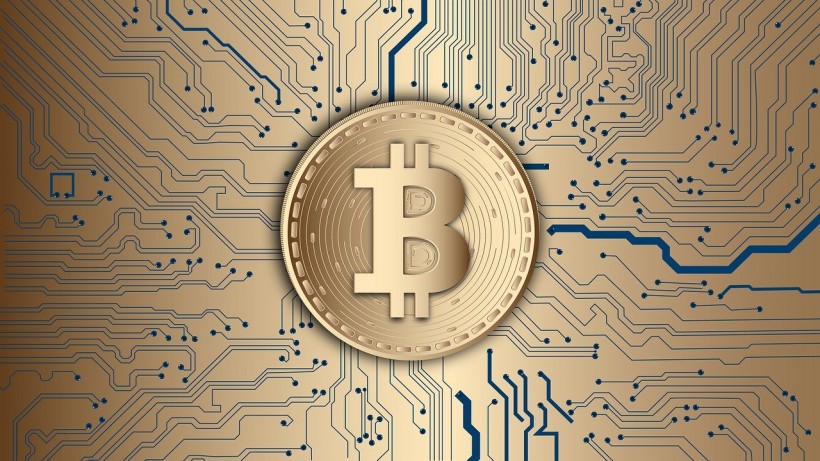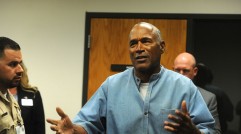An Argument for the Legality of Cryptocurrency

By Allie Johnson
With all of the government intervention in the crypto markets that's all over the news in China and South Korea, it's interesting to speculate on what the US will do from a regulatory standpoint. I can think back to when I first got involved with crypto, the legality question was the first question that I had to answer. Back then, not many folks had heard of crypto and my resources for information were little to non-existent.
Now you can look anywhere and find some mention of crypto. From the news media, to the Twitter trolls, to the befuddled news anchors reading from their teleprompters in disbelief of a new fiscal milestone - it's all noise...
How do you sift through the noise and focus on the signal?
Opinions dot the news media but aren't helpful to most. At the end of the day, it doesn't matter what people believe will happen, it really only matters what actually has and will happen. To be successful, facts MUST guide your journey.
The Facts
In crypto, the big challenge is that the facts are constantly being augmented -- and the general news cycle is far too slow to keep up with the latest. Additionally it is increasingly difficult to tell which facts are true. Consider reading about how the US FTC (Federal Trade Commission) defined Cryptocurrencies earlier this year:
"Cryptocurrency is digital money. That means there's no physical coin or bill - it's all online. You can transfer cryptocurrency to someone online without a go-between, like a bank. Bitcoin and Ether are well-known cryptocurrencies, but new cryptocurrencies continue to be created. People might use cryptocurrencies for quick payments and to avoid transaction fees. Some might get cryptocurrencies as an investment, hoping the value goes up. "
The FTC then went on to describe bitcoin mining incorrectly by indicating that 25 bitcoins are given in a "lottery" every 10 minutes after a block is mined. This information appears to be pulled from the FTC Bitcoin Mining Blog which hasn't been updated since 2014.
The truth is that the third halving of Bitcoin was on May 11, 2020 and from that date forwards every 10 minutes a block is closed and 12.5 bitcoins are minted and split relatively equally among all the millions of computers that mined that block. If you mine more, you make more of a percentage.
This is NOT a mining article, I just wanted to emphasize that if even the FTC has a hard time understanding how crypto works it's no wonder many folks are confused.
The economics surrounding crypto assets are just becoming main-streamed and a mix of crypto expertise, or lack thereof, is scattered throughout the government, banking, insurance, legal, and accounting firms. Many policy makers and money managers haven't yet been exposed to the new technologies and fiscal markets that dominate the crypto industry. This does NOT mean they are against crypto, but it does mean that more time is needed to sort through the many intricacies that this new asset class brings.
Where the U.S.-driven governmental guidance seems to lack is on the crypto user side. While they are somewhat clear in telling U.S. citizens what they can NOT do, these agencies are leaving out the most important part: educating the public on what U.S. citizens are allowed to do and working on securing our efforts in this space. While I'm still uncertain if the FED or SEC will oversee crypto, I believe the consensus is leaning towards the SEC.
Is it legal?
Yes, though it depends on what "it" is...
Crypto is an asset class that is officially accepted by the U.S. government and many other entities worldwide as forms of payment exchangeable for USD and other global currencies. The types of crypto assets that U.S. citizens can own - and cannot own - remains up for debate. This puts the US citizen at a disadvantage since most of the rest of the world is able to purchase ANY crypto asset, with few limits.
The usual hole to poke in crypto is it's "only used for crime" -- which is a myth. According to a recent article in Forbes, experts agree that the predominant currency choice for crooks is the good 'ole US Dollar, because physical money is harder to track than most cryptocurrencies.
Why? Holding crypto is kind of like holding cash in Venmo. You have your balance in a digital wallet, usually on your phone or your computer, and you can send and receive whatever assets you hold. In Venmo, you can see actual names of people who are paid and why they were paid (which is really bizarre to me...).
Cryptocurrencies have what's called a blockchain. That's where you can see what wallet address transferred wealth to what other wallet address. Each cryptocurrency has its own blockchain, and within the blockchain exists a precise, accurate, and immutable list of each and every transaction that has happened since the beginning of the coin. While it doesn't show your name, or a reason why you sent the crypto, it provides analytical service companies with the ability to use supplied wallet addresses to gather information about where funds have come from and where they go to. This is called "On-Chain" analysis.
This semi-anonymity and partial transparency is a double-edged sword because this (on chain) data can be used as evidence against a criminal, or used to spy on users. The more advanced criminals know this and have abandoned most of the crypto networks as a result. Sure, you still see non-sophisticated crime rings collecting bitcoin for payment. It's important to realize that investigators can piece together each little bit of Bitcoin collected and follow the trail to understand who was the recipient of the stolen bitcoin.
To crypto or not to, that's the question...
Crypto has certainly disrupted countless industries, but the main legacy industries feeling the bulk of the impact are the banking and investment industries. In the US, bankers have been traditionally tied with government officials and politicians in a delicate dance for approval. US regulators set forward solid fiscal accounting laws and bankers abide with the laws or face fines.
It all made sense to those legacy minded folks --until crypto appeared seemingly out of nowhere.
The world's wealth is measured by a commonly comparable concept called "Market Cap." Think back to Scrooge McDuck and how he used to swim in a sea of gold coins. Assume for a moment that you had a silo filled with all of the US Dollars that ever existed. Say you have another silo of all the Bitcoin that was ever created, and another of all the Amazon stock that was ever created. How would you know how they compare against each-other?
Shockingly, the answer is simple: compare the heights of each silo. To do this you need a common denominator, the US Dollar. The value in US Dollars for each of the silos is called the Market Cap and EVERY tradeable asset has one. Stocks, Bonds, Cryptos, Precious Metals, and (if you want to get into the weeds), even Real Estate, has a series of Market Cap measures superimposed on-top of it. Market Cap is usually measured in US Dollars, because at this point the US Dollar is the world's base currency. The Dollar is one of the only currencies that tends to hold it's relative value worldwide in check.
When crypto was anointed as an asset class, the crypto market cap was far smaller than it is today; at the time, there weren't many projects; and not many of them actually had working products yet. Nor was there much in the way of cryptocurrency information available to the general public. Regulators weren't thinking things through completely as they didn't have the complete picture yet. In crypto's earliest days, it didn't garner the proper attention needed to be welcomed correctly.
The way a new asset class is welcomed is by creating the mechanism to send and receive wealth to and from the new asset. These are called the "financial rails." Early on, as the crypto-specific financial rails were being built it was hard to have predicted much of what has transpired since. As a result the rails were created in a vacuum as monetary policy advisors didn't have the complete Crypto picture to generate the required laws. The folks creating the base-level crypto regulatory framework (through no fault of their own) did not have the knowledge, foresight, or political will to properly structure markets, on/off ramps, and common-sense regulations.
They did the best they could (or would) do for the time and information they had. For years, this shaky fiscal foundation was all that existed, and it wasn't until this latest crypto bull-run that world governments and institutions took crypto (and bitcoin in particular) seriously. Governments (the US in particular) have started issuing regulations, restrictions, prohibitions, and other limiting actions on their citizens relative to their citizens' personal crypto holdings.
It's important to understand that not all crypto is created evenly. Not all crypto projects are winners, and the industries that the crypto-minded folks are about to disrupt will decide the crypto communities that are good enough to stay. It's clear there needs to be guidance to help avoid scams and other illicit activities. But how can a group of folks solve problems without possessing the tools to understand the problems they are solving?
As mass adoption proliferates, an increasing number of crypto-minded U.S.citizens are hardened into regulations that do not yet exist and are not yet complete, finite, or proven to pass the courts test of validity. So what do we do? How long are we to wait for clarity? It's not reasonable to ask a whole country to stop investing and innovating so a government can learn about what they have already claimed they are regulating.
This has created a bit of a catch-22 for folks like me as the opportunity to make massive returns within the crypto markets diminishes over time. I personally am stuck in limbo on some of my investment strategies as I have been stopped out by recent governmental threats. I have personally lost access to the potential to earn millions of dollars because of the U.S. Government's restrictive laws. It's confusing to fully grasp what we can, and cannot do, legally - and it's felt by everyone involved, not just me. But before we go any further, let's dispel some myths.
The Players...
I can list hundreds of mentions of Bitcoin and Cryptocurrencies in the news, both positive and negative, but you can get that by just doing a web search (hopefully with presearch!). Cryptocurrencies join Stocks and Bonds as a new asset class. When Bonds, or Stocks, were created, Crypto was created as an integrated part of the world-wide economy.
Here are a few examples of asset classes:
-
Stocks
-
Bonds
-
Fixed Income
-
Cash (FIAT)
-
Foreign Currencies (FIAT)
-
Real Estate
-
Cryptocurrencies
An asset class is a bunch of financial vehicles that are similar in nature. This classification is where the largest debate between the legacy- and crypto-minded rests. Many people classify cryptocurrencies as a "store of wealth" asset like commodities and yet others believe it's a "transfer of wealth" asset like cash. Spoiler alert, it's both....
Consider a gold bullion bar. This is a store of wealth asset as if you own a gold bullion bar it is believed that it will hold or increase in value over time. This is where the "store of value" phrase comes. If you hold US dollars, it's believed that they will always be worth the same amount and therefore US dollars are a "transfer of wealth" asset. If someone transfers a finite amount of US dollars to another the buying power of that finite amount of US dollars wont increase over time.
There's really no reason why we need to classify all cryptos in one of these molds. Not to get in the weeds here, but assets with capped or controlled supplies are usually "store of wealth" and assets without physical limitations on the creation are usually "transfer of wealth" assets. Take Bitcoin, I believe it's a store of wealth and I point to the famous first pizza for the proving fact...
It's humorous to us to buy a pizza with 500 Bitcoins now because of the value 1 BTC is in USD. This illustrates perfectly why I believe Bitcoin is a "store of wealth" asset and not a "transfer of value" asset. It's plainly clear that the proper amount of wealth paid (1000 BTC) relative to the purchased commodity (2 Pizzas) was not reflected correctly over time. That's why it is funny and now has its own holiday to celebrate the irony.
The FED
The Federal Reserve (FED) was created in 1913 to solve a problem. At the time, ANY bank could issue "notes" that had real monetary value.
Think about this for a moment...
At one point there were people running around with dozens of different kinds of paper in their hands, looking to purchase goods, but the merchants didn't have any way of verifying the authenticity or value of each piece of paper. In other words, the first money markets were speculative and extremely risky...
You could buy a bank note for one price and the bank could go out of business and overnight the pieces of paper become worthless. Or your company could collect a lot of these notes and go to cash them in with the bank and come up empty because the bank was literally burnt to the ground the night before and all of their gold plundered. Plus there was no way to know if the notes you are holding were legally binding and if you lost them you lost your wealth... (Sound familiar?)
Enter the FED and their goal to consolidate, simplify, standardize, and issue a single US dollar currency. The Gold Standard Act of 1900 guaranteed that the FED would redeem any amount of gold at any time from a US citizen for USD equivalent. This ensured that if the US dollar as a currency were to have a sudden crisis everyone could safely switch to own their wealth into gold and not lose any wealth with the transfer.
For many decades the FED minted precisely controlled new US dollar currency and maintained active gold reserves to abide by the act. But how would you like to receive this in the mail? Or more accurately view it in a conspicuous place?
https://www.history.com/this-day-in-history/fdr-takes-united-states-off-gold-standard
Guess what was illegal in 1933? Owning gold...
Every US citizen had one month to immediately and irrevocably sell all of their gold to the Federal Reserve Bank (the FED.) This was representative of these family's entire life savings being overnight declared illegal to own and must be sold to the FED. The FED set the fee of $20.67 per ounce and the FED printed enough USD to purchase nearly a trillion unadjusted USD worth of gold.
In 1934 the FED decided that gold was now worth $35 per ounce thus increasing the US held gold supply in value by 69% overnight. The 1944 Bretton Woods agreement set forth the US dollar as the world currency and kept in place the US dollar peg to gold. To date many countries either PEG their native currency to the US dollar or just use the US dollar in place of a native currency.
Eventually the burden of maintaining a large gold reserve got to the FED and a few years before it became legal again for US citizens to own gold, Nixon removed the price fix and ended the gold standard. No longer was the FED required to hold enough gold to pay out all US dollars issued thus far. Immediately the US dollar cost per ounce of gold shot up to $120 per ounce thus increasing the US held gold supply in value another 3.5 times overnight. Ford then allowed US citizens to buy gold again in 1974 when gold averaged $158 per ounce. US households were then able to re-purchase the gold that their family sold at $20.67 per ounce for $158 per ounce. The FED made more than a 7 x ROI by purchasing gold at $20.67 and selling it at $158.
Today although you can not exchange US dollars for gold with the FED, US citizens can participate in the gold market freely and some countries' currencies still abide by the gold standard.
As the FED moved from a gold backed US dollar, they instituted another monetary policy called Fractional Reserve Banking. This sets up a really unique situation whereby the FED can truly create money out of thin air. For example - the US dollar payments from the recent Covid-19 bill share many fiscal similarities with all of the Crypto airdrops at the core of the recent SEC lawsuit against Ripple.
An airdrop is when a crypto wallet holder meets a requirement and is awarded wealth without a cost basis. Compare this against US citizens getting $1400 deposited into their bank accounts without a cost basis.
Fractional Reserve Banking
So it turns out it's really difficult to print 5 trillion dollars in earnest so although some new US dollars and coins are printed, most USD is lent into existence by the FED. The FED doesn't actually print the USD though... there's another agency for that task, The US Mint.
It's an economic mathematical truth that for every new USD the FED orders to be printed, each already issued USD loses a small portion of its global buying power. This is called inflation and to guard against inflationary fiscal policy the quantity and rate of new dollars being issued was to be capped by Congress. Congress was to be in control over how many USDs the FED could ever order to be printed.
As a result, the FED has certain rules governing how much physical currency there needs to be present at each banking layer. The FED is also in control of the ordering of physical printing and destruction of USD. In general, fractional reserve banking is the most common world-wide accounting system for cash-based (FIAT) currencies.
Lastly, maintaining the USD value globally is a delicately elaborately orchestrated dance between money managers, government regulators, and think tank types that brainstorm us away from worst case scenarios. At any given time the US FED has open interest in US dollars in many foreign markets to maintain inflationary and deflationary stability.
But in general the idea that the US Dollar is somehow considered "physical" money is humerous to me.
Just how fractional is it?
As of February 10, 2021, there was $2.05 trillion worth of Federal Reserve notes in circulation.
Here's a chart indicating the amount of currency in circulation for the past 10 years
https://www.federalreserve.gov/paymentsystems/coin_data.htm
As you are probably aware the Covid relief acts of 2020 and 2021 were to create 5 trillion new USD of dollars, but why is there still only 2.16 Trillion USD in circulation according to ycharts?
The vast majority of the USD created by the FED is not printed and put into circulation as physical dollars and coins. This is because it's incredibly expensive to create coins in particular. In general it is far more efficient to create "digital US dollars" and credit a bank account with the new money.
The physical US coins and bills in circulation are a small percentage of the real USD worldwide circulation. $19,662,601,770,000 USD exists according to https://fiatmarketcap.com and of that as of 2/10/21 $2,050,000,000,000 USD is physical. This means that ONLY 10% of the US Dollars are physical, the rest are already "digital money". This draws another parallel with the Crypto industry since the vast majority of the USD is also NOT physical. 90% of ALL we know and believe to be a physical USD currency is in fact digital money and the definition of crypto is "digital money"... spooky...
The fiat accounting mechanism is not at all centralised but rather it's in clusters worldwide and therefore harder to protect. You need to be a strong government with a huge military to protect a fiat currency like the USD. It's very difficult to physically and virtually protect hundreds of thousands of banks worldwide who hold physical USD or digital USD currency.
Another thing that is VERY interesting to me is coin production. Currently it costs more to produce coins than they are worth at face value. This is because of the metals that they are composed of. Copper and Nickel metal spot has been increasing over the years and the value of a penny and a nickel does not change.
The US Mint
The US Mint is a business just like any other - it has products and produces an annual report - it just has one investor though, the US Government. So they have a bit of a grey area when it comes to "profitability" as they are forced to create new coins at a loss but they make up for it with specialty coins and production of paper money. Here's the cost according to their 2020 Annual report of creation of coin and paper.
As you see above it costs 1.76 pennies to make 1 penny and 7.42 cents to make a nickel but they make up for it with Dimes, Quarters and Half Dollars, not to mention the paper printing...
The US Mint has a cost of 14 cents to manufacture a $100 bill and then they "sell it" to a bank for $100... pretty decent profit margin.
The SEC
The US Securities and Exchange Commission (SEC) has a really hard time defining itself in few words but they are in charge of anytime money changes hands in certain kinds of transactions. You'll probably want to ask what kinds of transactions do they oversee and to what effect this will have on the Cryptoverse? I honestly don't know nor do I believe the SEC (as a body) knows to a full extent yet.
When researching their site for this article all of the mentions I found of Cryptocurrency were in actions taken against Crypto firms and settlements for lots of US Dollars to be paid to the SEC from crypto-based companies.
Their main 3 pillars of focus are "Investors, Innovation, and Performance" and their website has clearly not been updated for the new fiscal environment we are in.
SEC Goal one: Investors
The SEC separated Investor goals into 5 initiatives:
-
Understand the investor
-
Educate the investor and businesses
-
Pursue enforcement of what they believe to be wrong
-
"Modernize" public disclosures to investors
-
Facilitate "vibrant public securities markets"
Taking these in order, I believe to understand the investor you must understand what they are investing in and to not have any section with crypto information or the clear precise listing of rules and regulations for US citizens to follow is unfortunate. I imagine this will change soon.
How can they educate if they don't seem to even mention the elephant in the room. The cryptocurrency asset type is growing exponentially and China is embracing this at a faster level. It's believed that China will fully digitize the Yen over the next few years and yet our SEC has only a few brave people to speak up with their thoughts, couching them with the usual caveats of "this isn't what the SEC believes, it's what I believe..." How is that helpful?
I am neither an attorney nor an accountant and all of these things are over most of our heads, but the BEST advice I can give anyone is to trust the company that is servicing your wealth, no matter the type of wealth.
It's to this end that I point to proper risk mitigation. Some moves within crypto are more risky than others and some people in general have a higher risk tolerance, but that does not mean they will have a higher success rate.
Stick with the basics and within the confines of your means and you should be fine as it's still really early in the crypto markets. It all comes down to risk mitigation, just as with non-crypto investments.
Risk Mitigation
Risk can come in many forms when it relates to crypto. Wallets can be hacked, phones can be sim-swapped, and companies can go belly up just the same as they can in the legacy world. I believe as you are starting your journey you should stick to the names you know and trust in the brands that have been properly built as they have the lasting power.
PLEASE do not EVER go all in on ANYTHING. Spread your wealth across multiple servicing companies, multiple wallet technologies, and multiple actual crypto assets. Deal only with the best crypto exchanges that are reputationally sound and secure. It doesn't matter how great a deal it is, or how hot an investment or even if everyone you know is doing it, all investments are risky and in general you never want all your wealth in the same thing no matter what it is.
Invest, explore, do what you want, but never have more than what you can afford to lose in any one place at any given time. That's the best advice I could give anyone and has saved me from being completely rekt many times.
Crypto is an industry where you MUST do proper research before diving into anything and that research needs to be from lots of people inside and outside different parts of the crypto flow. Ask yourself, does the project solve a problem that is important enough to solve and if so, does it solve it in a novel enough way to have a lasting change on the industry the team is attempting to impact? Does the team you are investing in have the proper training, abilities, access, partners, roadmap, legal footing to achieve their goals? Questions like these must guide your journey and your answers must interest you enough to keep pursuing it since there are far too many options out there to choose from even one bad sign could be enough to hold off a whole investment potential.
Subscribe to Latin Post!
Sign up for our free newsletter for the Latest coverage!














